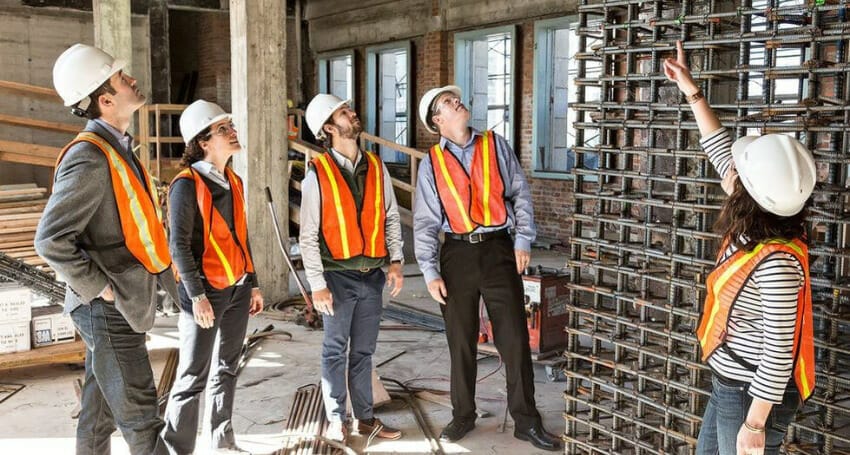Construction is a complex field that consists of numerous, interconnected elements. Among the most pivotal of these elements, often unexplored, is construction administration. This article intends to provide a detailed understanding of construction administration, its significance, its key components, and how it aligns with and differs from construction management.
What is Construction Administration?
Construction administration is the process where every detail of a construction project, from inception to completion, is carefully managed and controlled. This includes the evaluation and interpretation of construction documents, supervision during the construction phase, and ensuring that all aspects of the project are being conducted as per the pre-set guidelines. It is a crucial part of construction services that ensure smooth operation and eventual success of any construction project.

Delving into the Construction Project Lifecycle
A construction project moves through various phases from its inception till completion. These phases may include project initiation, planning, execution, control, and closure. Construction administration is actively involved in each of these stages, interpreting and managing construction documents, guiding the construction phase, and ensuring the project adheres to the set plan and schedule.

Why is Construction Administration Important?
Construction administration plays a pivotal role in the overall efficiency and success of a construction project. It maintains the quality of the project, ensures cost-effectiveness, manages risks, and keeps the project on schedule. The construction administrator acts as the eyes and ears of the project owner, making sure the project’s requirements are met without compromising on the standard, budget, or timeline.
Quality Control
A crucial role of construction administration is ensuring the quality of the project. By reviewing construction documents and regularly overseeing the construction phase, the administration can guarantee that the project meets the required standards and adheres to the construction codes and specifications.
Cost Management
The construction administrator works to make sure the project stays within the budget. They are responsible for reviewing and approving cost estimates, tracking actual costs, and ensuring that the project doesn’t run over budget.
Risk Management
Construction projects often involve high levels of risks, such as safety hazards or unforeseen construction issues. The construction administration proactively identifies, assesses, and mitigates these risks, ensuring the smooth running of the project.
Schedule Adherence
One of the core responsibilities of construction administration is to make sure the project stays on schedule. This involves coordinating with all involved parties, managing resources, and addressing any issues that may cause delays.
6 Elements of Construction Administration
There are six key elements of construction administration that form the foundation:
- Plan Review: The thorough assessment of construction documents before the construction phase begins.
- Cost and Schedule Management: Tracking of the budget and timeline to ensure that the project stays within the set parameters.
- Quality Control: Regular oversight and review of the project to maintain the required standards.
- Contract Compliance: Verification that the project adheres to all contract requirements and regulations.
- Risk Management: Identifying, assessing, and mitigating potential risks in the project.
- Communication Management: Ensuring effective communication between all parties involved in the project.
Construction Administration and Construction Management: A Comparative Overview
While construction administration and construction management are two distinct aspects of construction services, they are closely intertwined. Both are pivotal to the success of any construction project, yet they differ in their roles and responsibilities.
Construction administration is focused on ensuring that the project adheres to the plan as outlined in the construction documents, while construction management is more focused on planning, coordinating, and overseeing the actual construction process.
The construction administrator typically handles contractual matters, interpretation of construction documents, compliance checks, and cost tracking. On the other hand, a construction manager is responsible for scheduling, coordinating labor and materials, and managing on-site activities.
In essence, the construction administrator’s role is more regulatory, while the construction manager is more hands-on, and involved directly in the execution of the construction project. Both roles are crucial to the success of any construction project and often work in collaboration to ensure smooth operation and completion of the project.
What is an Architect’s Role During Construction?
During construction, an architect plays a crucial role in overseeing the execution of a design project. They act as the coordinator and mediator between the client, contractors, and other professionals involved in the construction process. The architect ensures that the project is being implemented according to the approved plans, specifications, and local building codes. They make site visits to monitor progress, address any issues or changes, and ensure that the quality of workmanship meets the desired standards. Additionally, architects provide clarifications and guidance to the construction team, review and approve contractor submittals, and may also assist in resolving any conflicts or disputes that may arise during the construction phase. Their involvement helps ensure that the design intent is faithfully translated into the final built form.
Do you really need construction administration?
Construction administration is a crucial aspect of any construction project, as it plays a vital role in ensuring successful completion. While some may question its necessity, the unique value it provides cannot be understated. Construction administration involves overseeing the entire construction process, from start to finish, to ensure compliance with plans, specifications, and regulations. It includes activities such as coordinating contractors, conducting site visits, managing project schedules, and addressing any issues that may arise during construction. This comprehensive oversight helps minimize delays, reduce errors, and ensure that the project is completed within budget and to the desired quality standards. Without construction administration, projects may be at risk of costly mistakes, miscommunication, and lack of coordination, ultimately leading to increased expenses and compromised outcomes. Therefore, it is essential to recognize the significance of construction administration and its impact on the overall success of a construction project.

Concluding Thoughts
Construction administration is a crucial element of construction services, providing essential oversight and control over a construction project’s lifecycle. Through diligent plan review, cost and schedule management, quality control, contract compliance, risk management, and communication management, the construction administration ensures that a project meets its defined objectives within the established budget and timeline.
By understanding the key elements of construction administration and how they differ from construction management, project owners, contractors, and other stakeholders can better manage their construction projects, leading to improved efficiency, cost-effectiveness, and overall project success.





